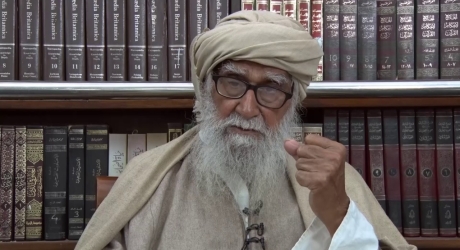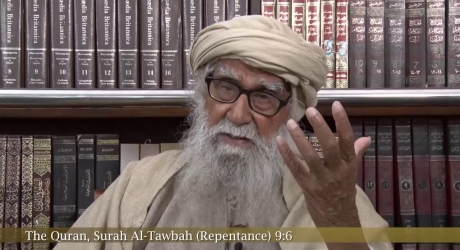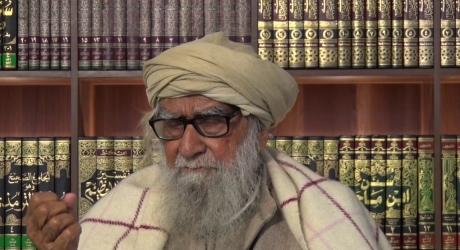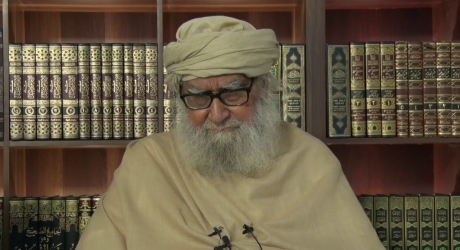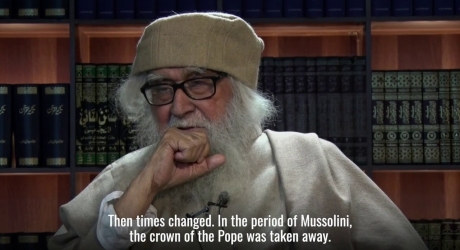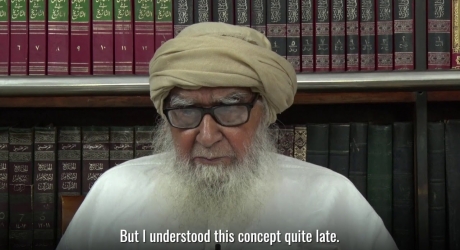The secret of success in life is not to make others suffer losses at your hands. The secret to success in life is to plan one’s time and energy wisely and to avail of the opportunities within one’s reach. The secret of success in life is not to make others suffer losses at your hands. The secret to success in life is to plan one’s time and energy wisely and to avail of the opportunities within one’s reach. All this should be done silently. This peaceful strategy of the Prophet Muhammad was that seven years after he migrated from Makkah; he was able to organise a peaceful march to Makkah and enter the city without facing resistance from his opponents. This event is mentioned in Chapter 110 of the Quran. At the time of controversy, people generally fight with others. However, this is not a wise course of action. The wise course is to avoid fighting and strive to reach your goal through quiet planning while keeping a low profile. One should discover the available opportunities and try to utilise them peacefully. It is the law of nature, and the law of nature never fails. If you follow this strategy based on the law of nature, you will certainly have success.
Introduction
I would begin by sharing my experience with a regular reader of Al-Risala. Since he had read my books, I felt curious to enquire what he drew from them; he said he learnt several things. Upon insistence over specifics, he said that my writings inculcated in him the spirit to see extraordinary things in ordinary events. This I felt was the right description of marefat (realization of God).
Man takes things for granted inveterately. Be it the ability to speak or the conversion of food into bones, flesh, blood, inside our body; these are super-miracles, which are seldom reflected upon. It is therefore important to understand that realization of God (marefat) is not attained through recitation of a few words or verses; it is a continuous, un-ending process. As one embarks upon it, glory of God begins to demonstrate itself in all His creations.
Reading the Quran with an objective mindset
Time and again, scholars have tried to achieve wrong ends by rendering erroneous interpretation of the Quran. Instead of drawing from the true spirit of the Quran, they create clamour to achieve political ends; when emotional pleadings do not yield the desire result, militancy and suicide bombing is resorted to. Recently, a Somalian youth entered the house of the Danish cartoonist (cartoon controversy, 2005) to sabotage him. Such acts convey a strong disregard to the teachings of the Quran, one of which even states that,
“Believers, do not enter other people’s houses until you have asked their owner’s permission.” (24:27)
Such acts are a direct result of the lack of awareness of the teachings of Quran. The unawareness follows the unpreparedness with which Quran is read. In other words, when the Muslims read the Quran, they do so in light of their prejudices, which consequently mar their opinions. Instead of reading it objectively, they read their “mind” in the Quran and therefore the understanding of its real spirit eludes most men. Those who harbour thoughts of violence, read the Quran with a violent mindset hence disallowing any scope of change in behaviour. If for instance, the miscreant who entered the Danish cartoonist’s house was imbued with the spirit of dawah work, instead of carrying an axe he would have presented him a Quran in the hope that the latter might receive guidance.
Some glaring contradictions
Quran was revealed for providing guidance to the whole of mankind; yet ulema confined themselves to Muslim-oriented activities. Here I would like to quote an acquaintance who shared a shocking but true observation. He said that although the Quran says that God is the Lord of mankind (Rabb-il-alameen), Muslims have made it appear as if God is the Lord of Muslims (Rabb-il-Muslimeen). The acts of the present-day Muslims testify the aforementioned statement. It is appalling to note that despite “reading” the Quran, Muslims did not become well-wishers of mankind and could only develop Muslim-oriented thinking; this was because they merely read their perceptions in the Quran. For instance, a very popular Arab leader, Sayyid Qutb wrote the commentary of the Quran but he confronted headlong with the rulers of his land despite their being a clear verse in the Quran, which ordains the believers to refrain from confronting with the rulers. (Ch 12).
Qutb could not take lesson from the life of Prophet Yusuf who exemplifies the response that a believer must exhibit in trying circumstances. Prophet Yusuf did not confront the mushrik ruler under whom he held the charge of ministry, instead he availed the opportunity that existed. Contrary to this, Sayyid Qutb neither availed the opportunity and even fought with the rulers, thereby succumbing to his whims.
Right approach
The Quran rightfully says:
“He lets many go astray through it (Quran), and guides many by it.” (2:26)
This verse implies that reading the same Quran may have two distinct outcomes; while reading it with an open mind provides right guidance and is indicative of being on the right path; reading with a prejudiced mindset and drawing false conclusions is a sign of being led astray. Another case in point is Gita (religious text of Hindus), which was used by Gandhi to extract teachings of peace whereas Tilak used it to profess teachings of violence.
Man must therefore break his existing ideas or decondition himself by carrying out ruthless introspection before he may receive any guidance form the Quran.
Spotting the opportunity
After the worldwide disintegration of Muslims empires, Muslims started living in the psyche of paranoia. They have still not attuned themselves to the altered state of affairs. Their mentality does not allow them to see the opportunities that galore. The recent case where Nidal Malik Hasan, a major in American military killed thirteen Americans was an entirely illegitimate act. Such acts will incur severe wrath of God because such people demonstrate that neither are they patriotic towards their homeland, nor well-wishers of mankind.
The root cause of such demoniac behaviour lies in the erroneous political interpretation of the teachings of Islam. Ever since the political empires of Muslims dismantled, they consider the rest of the world as being a conspirator. And because their interpretation of an empire only entails its political aspect, they have failed to recognise the opportunity empire which has come into existence.
The right beginning
This is the age of opportunity-explosion but unfortunately Muslims are busy lamenting; no one understands from where to begin. Right beginning can be made by de-conditioning the mind, which can happen through active thinking and constant introspection. It is for this reason that the first verse revealed in the Quran was:
“Read!” (96:1)
Muslims must realise that despite being involved in struggle and chaos for centuries, they have failed to obtain any positive result. Be it the futile struggle of Sayyid Qutb to dethrone King Farouk or the back-firing of Iqbal’s ideas of an ideal Muslim state, all these exemplify the loss of opportunity incurred. It is therefore wrong to think that seminars, protests, conferences etc. mark the right beginning; only changed mindset does.
In conversation with an acquaintance, I was shocked to hear his observation of Islamic history; he said that the history of Islam was marred by wars and battles. This is a significant statement when seen in the light of Prophet Muhammad’s saying,
“Once when sword would enter my community, it shall never be ridden of” (Musnad Ahmad)
Quran ordains believers to exercise restraint in the face of worst crisis. So, even if someone comes to your home to harm you, a true believer must become like Habeel (the son of Adam), who did not react even though his brother killed him.
Decentralisation of power was a boon
When I read about the acts of the present-day Muslims, I feel dismayed at their barbarism. I wonder why they would want to return to the era of bloodshed and savagery, despite clear teachings of the Quran, which elucidate that when man controls opportunity, it is fitna, when nature prevails that is the religion of God.” (Ch 8)
This further brings to fore the importance of de-centralisation of power. The rulers of early empires exercised a central control over all sorts of opportunities. The king’s decision was sacrosanct and could not be overruled; the only equation that existed being the one between the ruler and the ruled. This was a fitna as it disallowed all means of intellectual progress. God decided to put an end to such a system of governance and initialised a process which culminated in the form of democracy in the present world.
De-centralisation is not new to Islam. When the Muslims entered
The following anecdote recounts the brutality of the times when the order of king dominated the lands under his aegis. In order to test the allegiance of his courtiers, an Iranian king pretended to seek their opinion about his policies; no one except one got up and voiced his concern about the high taxation policy. The king feigned his agreement but later had the courtier killed. This was the scenario that made people oblivious of independent thinking. It was the revolution that the Prophet and his Companions brought about, which paved way for ending centralization and brought to fore the goodness of decentralization.
The concept of a nation state
A recent article raised the concern that because all Muslims live in community thinking, they are not loyal to the state they live in. The writer cited the example of the American military-man who killed Americans saying that his allegiance was to his Ummah (community) and not to
The concept of Al-ummah was the offshoot of the idea of Pan-Islamism. Raised by Jamal-al-Din Afghani, this slogan was aimed at uniting Muslims all over the world. The idea was propagated far and wide. It was for this reason that Muslims found it very difficult to adjust with the idea of a nation state, which appeared incompatible with the notion of al-ummah. It is noteworthy that the idea of communism had met a similar fate. Marx sought that the worker class of the entire world must unite against the capitalist class, which brought into being the Communist International. But after the First World War, the Communist International disintegrated as all workers helped their respective nations.
It is easy to understand why the concept of al-Ummah did not perish. According to a tradition of the Prophet
“If an alim slips, the entire world would slip.” (Al-Tabarani)
It was the intervention of ulema that fuelled this condemnable concept. The problem aggravated because the ulema propagated this concept as a matter of faith. If they would have deliberated, ulema could never have issued fatwas in favour of such a detrimental and dangerous proposition. It will be no exaggeration to state that referring to all the Muslims as a single nation is a political evil because this would waver them from being loyal towards their homelands. It was a grave mistake to turn a non-religious matter into a religious issue; it was a clear innovation (bidat). It is important to understand that as a citizen of a country one is bound by the laws of one’s homeland. Therefore nationhood and allegiance can only be land-based as it is the land that we reside and were brought up in, which is truly worthy of our allegiance.
We must therefore reassess and rethink so that we can revise our thinking and evaluate our actions. The opportunity empire of today has made harbouring hatred and negative thoughts an illegitimate act. In order that we avail the opportunities that have been created, we must become aware about the world around us and be thankful to God for His blessings.
May God guide us rightly so that we can introspect!





